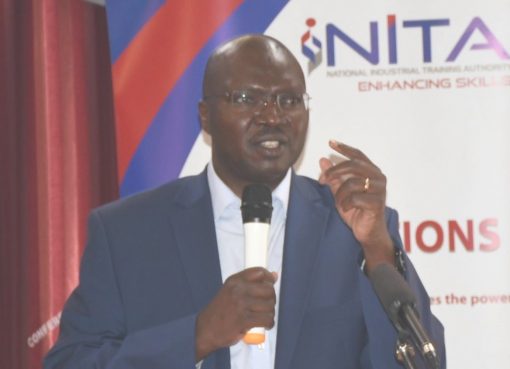Some 75 health workers are being trained on Advanced Cardiac Life Support (ACLS) to impart the medical practitioners from Kisumu and neighbouring counties with adequate skills to provide critical care to heart patients.
The program run by the Aga Khan Development Network (AKDN) through funding from the European Union also aims at empowering 15 trainers of trainees.
A cluster of doctors and nurses drawn from various government hospitals in Busia, Kisii, Bungoma, and Migori Counties and The Aga Khan Hospital Kisumu are taking part in the training.
Dr Kennedy Mulamwa the Program’s Coordinator speaking during the training session at a Kisumu hotel said the program also aims at strengthening health system resilience to adequately respond to the outbreak of different diseases as well as upscale service delivery to patients who require critical care.
“The program seeks to strengthen government health institutions and the Aga Khan Hospitals, and to train the health workers on ACLS to enhance and improve the capacity of the health workers to provide quality healthcare services to patients in their respective institutions,” Mulamwa said.
The training in Kisumu is conducted in different cohorts that runs from 29 August to 9 September 2022.
Dr Eshiwani Patrick, the Medical Director of Aga Khan Hospital Kisumu, while speaking at the same event said the institution’s five various footprints in the region continue to work closely with other organizations in the delivery of better maternal and health services.
To address the constantly emerging Covid-19, a respiratory tract infection that can lead to death in some people, Eshiwani said that they have been responding swiftly through the provision of the much needed PPEs, testing kits and other medical equipment.
“Today Covid has gone down, but there is Post-Covid Syndrome which persists for weeks and months among the patients who suffered and initially recovered from Covid-19, and the effects of Covid are still being felt,” Eshiwani said.
Eshiwani stated that the program purposefully focuses on enhancing the capacity for resuscitation and providing that service to patients in intensive care and High Dependency Units.
He further revealed that resuscitation is a costly exercise and most of the trainers are from outside of the region.
“The program also aims at identifying trainers in a class of 15 who can be able to impart knowledge to other medics on resuscitation procedures and assess them effectively in this region without outsourcing for trainers from Nairobi and elsewhere,” Eshiwani explained.
The training is carried out and monitored under the umbrella of the American Heart Association, and upon completion, the successful trainers will be incorporated as members.
“Diagnosis of Covid-19 requires specific isolation, detection of the virus DNA and Aga Khan Hospital Kisumu has a molecular laboratory able to do that,” Eshiwani pointed and added that diagnosing using the molecular platform is quite expensive.
One of the training beneficiaries, Dr Priscilla Munga based at the Kisumu County Referral Hospital lauded the initiative as a game-changer as it will improve patients’ survival.
Further, she observed that the move would strengthen the working relationship between the public-private hospital patients’ referrals and bridge the medical gaps in terms of resuscitation.
Eshiwani confirmed that Aga Khan University has an MOU with the Kisumu County government on capacity building where they offer the platform for training and the devolved unit offers the staff to be trained without paying fees.
Currently, pediatrics and gynecologists from the Lakeside County are benefiting from this arrangement which also involves staffing and equipment.
Emily Ogutu, a clinical nurse at the Aga Khan Hospital-Kisumu said that the training has helped them acquire knowledge especially in planning for taking care of ailing patients, enabling them to identify those early signs that may lead to deterioration and initiate processes to help and prevent the deteriorations.
“Basically, this training helps know when to intervene and involve other physical care of the patient to save their lives,” Ogutu said.
The training program is one of the multifaceted approaches initiated and funded by the EU and AKDN since February 2021 to the tune of Sh1billion to combat Covid-19 among vulnerable people in East African countries like Kenya, Mozambique, Tanzania, and Uganda.
By Rolex Omondi and Purity Osura




